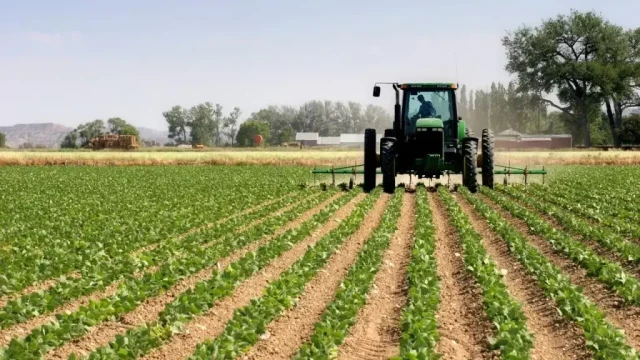Nigeria's commercial banks have provided N4.68 trillion in loans to the agricultural industry between 2018 and 2022, recent report has indicated.
This comes as the federal and state governments are seeking solutions to the ongoing national food crises.
The report, published by Alford Conferences Limited, highlighted the need for commercial banks to increase their support for the agriculture sector, as only 5.03% of their total loan portfolios were allocated to agriculture during the report's timeframe.
The CEO of Alford Conferences urged state governments to collaborate more closely with banks to facilitate funding for agricultural projects.
The total lending of N4.68 trillion over five years stands in notable contrast to the N8.18 trillion in internally generated revenue raised by the FCT and the 36 states during the same period.
Additionally, it is significant when compared to the N1.12 trillion allocated to the Anchor Borrowers Fund by the Central Bank of Nigeria (CBN), aimed at supporting smallholder farmers since its establishment in late 2015.
The report analysed 22 licensed banks in Nigeria, identifying those with loans exceeding N1 trillion. Of these, 12 banks were highlighted for their contributions to the agriculture sector.
Access Holdings Plc emerged as the largest lender, offering N928.55 billion to agriculture within its total loans of N17.386 trillion. Other top lenders included Zenith Bank and FBN Holdings, which provided N873.36 billion and N285.18 billion to agriculture, respectively.
Ecobank Nigeria topped the list for the highest percentage of agricultural lending, dedicating 12.28% of its total loans—amounting to N574.69 billion—to the sector.
Following closely were Sterling Bank and FCMB Group, which committed 8.19% and 7.58%, respectively.
Meanwhile, Zenith Bank, Access Holdings, and Stanbic IBTC Holdings also surpassed the industry average of 5.03% in agricultural lending during the 2018-2022 period.
Alford Conferences Limited, the organiser of the annual Nigeria Food Surplus Summit, aims to address the challenges of food production in the country with a population exceeding 220 million.
The upcoming summit aspires to transform the agricultural landscape by promoting commercial farming and processing, thereby reducing reliance on smallholder farmers and fostering greater self-sufficiency and export capacity.
The discussions from the summit will seek to strengthen commercial agriculture across Nigeria's states, aiming for a strategic partnership with local agricultural ministries to enhance productivity and output.




















